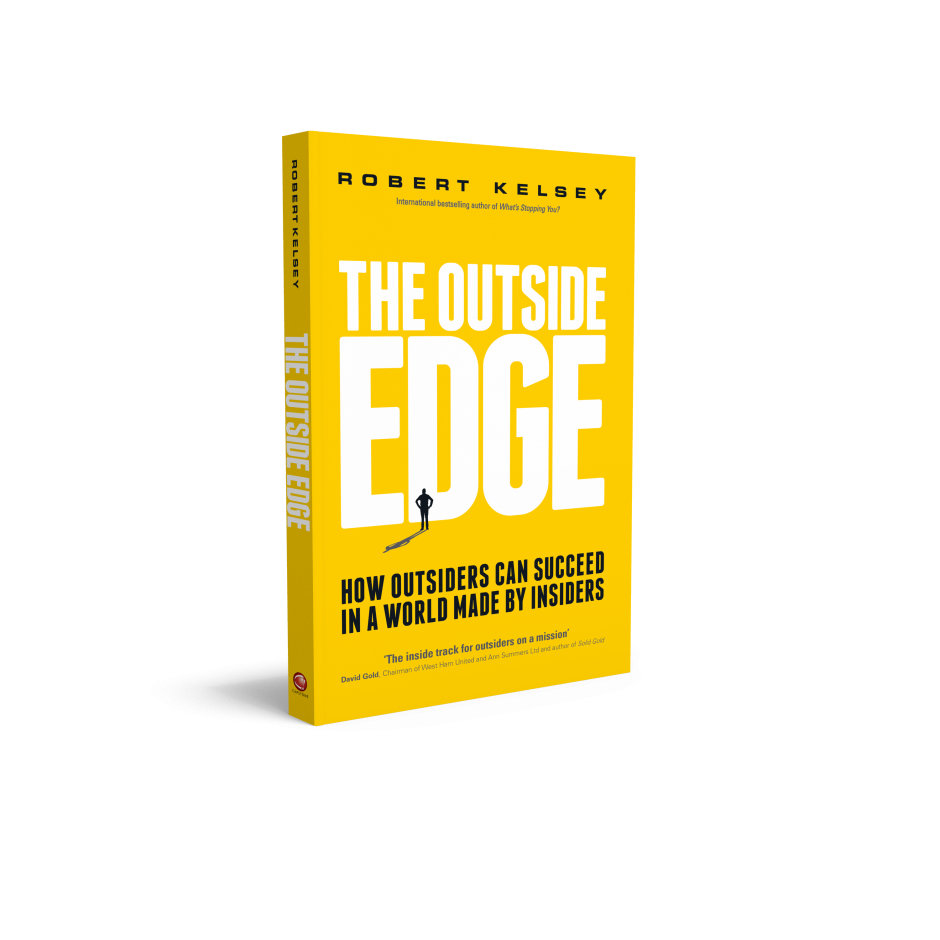His books are all-empowering guides to unlocking the potential within us, but author Robert Kelsey says he is an outsider who, on paper, shouldn’t have succeeded
Fear of failure, being more confident and overcoming procrastination are familiar challenges for most of us at various stages of life. Robert Kelsey is a highly successful author who has unlocked the answers to each of these issues in his hugely popular books over the years, so it comes as something of a surprise for him to admit that he considers himself an outsider. His latest book, The Outside Edge, How Outsiders Can Succeed In a World Made By Insiders, tackles alienation, isolation, poor-confidence and depression as the likely results of feeling like you don’t belong. It’s a scenario that Kelsey says he himself felt as a boy growing up. “All my books come from the heart,” says Kelsey, “but I think this one especially so.
“This one is about me, I’m an outsider and I’ve experienced a range of issues such as isolation, alienation, misunderstanding and being misunderstood. I tried to define what it meant to be an outsider and the result is very personal. I would caveat by saying that it is only a successful definition for myself, but hopefully it will resonate with other people who feel this way to a greater or lesser degree.” While Hollywood and other authors, including Malcolm Gladwell, present the outsider as a hero and winner, Kelsey says in reality this is the exception to the rule, claiming there are more unhappy, disillusioned misfits who fail to reach their potential. “There are clear insiders and outsiders in life,” says Kelsey.
“Look at me, for example.I went to a poor Essex comprehensive school – today most of my school peer group are not professionals or academics, and live happy but uncomplicated lives in suburban Essex, while my identity issues made me less popular and more restless. “I felt uncomfortable and like I didn’t fit in, even as a child. I grew up in a stressed environment where family structure was an issue, and I felt that I didn’t belong. Rather than stay, I moved on from that and therefore I was an outsider, and it’s an attitude that you often find in artistic types. “Tracey Emin is clearly an outsider from Margate, but is an insider in the art world. Yet she appears to feel more comfortable as an outsider, having declared herself a Conservative when she belongs to a traditionally liberal arts scene.”
The good news, says Kelsey, is that outsiders can forge an edge, a unique and dynamic outlook that can – if honed – lead to success. If outsiders can overcome the negative baggage they’ve acquired in childhood or adolescence, they can harness their unique qualities to win in a classic redemption story. The key to this is finding meaning to harness their skills and attributes.
“When I achieved success in life,” says Kelsey, “I could look back and say it was tenacity that enabled me to achieve it, but this is only correct in retrospect. Once outsiders have a goal and can channel their energy into achieving it, they have purpose and a plan.” Another outsider who Kelsey cites is Steve Jobs, demonstrating that when the odds are stacked against you, it is possible to overcome adversity. “Jobs was the adopted son of a car mechanic, and dropped out of school,” says Kelsey, “but he harnessed his creativity and developed a strong strategy that everyone could use in his company. “This was exemplified again during his second coming at Apple, when he waited for the next big thing – the ipod and then the iPhone – to move forwards. Boldness and tenacity are important, but vision comes first.” Kelsey says his own vision arose from his poor education. “I wanted to achieve a decent degree from a good university,” he says, “and I achieved this with a 2:1 from Manchester University. It was a good start but you have to continually visualise where you want to be. I regularly formulate one, five and ten year plans – as outsiders we tend to believe we will be bashed off the path on the way, so it’s important to focus on and know your own goals.”
Robert Kelsey’s The Outside Edge, How Outsiders Can Succeed In a World Made By Insiders is published by Capstone.




